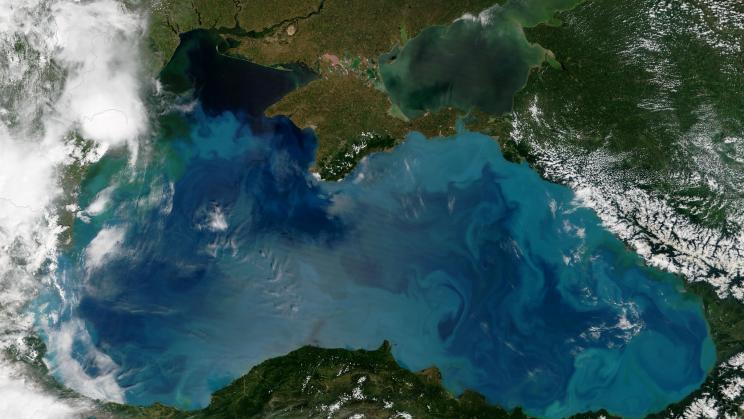
Following a competitive process, SIPRI is pleased to announce that it has been awarded a grant from Carnegie Corporation of New York and MacArthur Foundation to support new approaches for nuclear security.
Security issues associated with nuclear materials have been one of the core areas of SIPRI’s research programme since the founding of the institute over 50 years ago. SIPRI’s research for this grant will focus on assessing and responding to the impact of the crisis in and around Ukraine on nuclear security cooperation in the Black Sea region, long a hotbed of nuclear material smuggling.
The project will assess whether and how the conflict has changed the risk that illicit trafficking will occur, describe the impact on existing regional nuclear security regimes and cooperative projects that are intended to reduce the risk of illicit trafficking, gather views on necessary steps to minimize the new risks, and disseminate the study results to active and potential donors and nuclear security assistance recipients.
In preparation for the project, SIPRI built partnerships with three local organizations to tap into their contacts, regional policy expertise and understanding of realities ‘on the ground’: Odessa Center for Non-Proliferation in Ukraine; Horia Hulubei National Institute of R&D in Physics and Nuclear Engineering (IFIN-HH) in Romania; National Agency for Regulation of Nuclear and Radiological Activities (NARNRA) in Moldova.
Project activities will include country visits and interviews, analysis and drafting of a policy paper which will be discussed at a conference in Bucharest in 2018, which will then be published and its findings will be used to brief key stakeholders.
These activities will specifically target the nuclear security community in the Black Sea states; governments and decision makers in the countries currently funding nuclear security assistance programmes in the region, and potential stakeholders in the region that are relevant but not engaged so far.
SIPRI is among 11 organizations that have been selected on the merit of their proposals aims at reducing nuclear risk through innovative and solutions-oriented approaches. In selecting these projects, special emphasis was placed on work that combines technical and foreign policy expertise, brings new voices to the field, fosters collaboration among multiple institutions, and integrates early-career experts.
About Carnegie Corporation of New York
Carnegie Corporation of New York was established in 1911 by Andrew Carnegie to promote the advancement and diffusion of knowledge and understanding. In keeping with this mandate, the Corporation's work focuses on the issues that Andrew Carnegie considered of paramount importance: international peace, the advancement of education and knowledge, and a strong democracy. More information is available at www.carnegie.org.
About the John D. and Catherine T. MacArthur Foundation
MacArthur supports creative people, effective institutions, and influential networks building a more just, verdant, and peaceful world. MacArthur is placing a few big bets that truly significant progress is possible on some of the world’s most pressing social challenges, including over-incarceration, global climate change, nuclear risk, and significantly increasing financial capital for the social sector. In addition to the MacArthur Fellows Program, the Foundation continues its historic commitments to the role of journalism in a responsible and responsive democracy, as well as to the strength and vitality of our headquarters city, Chicago. More information is available at www.macfound.org.